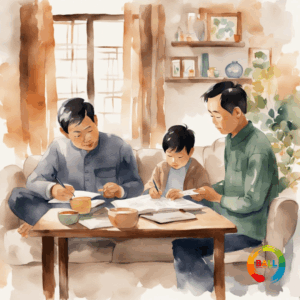Coping with depression and anxiety simultaneously can feel like being pulled in two conflicting directions, each vying for control. Depression might whisper that you’re too exhausted to move, urging you to stay in bed and disengage, while anxiety pushes you toward overthinking and constant activity, making rest seem impossible. Studies suggest that between 20% and 40% of people with depression or anxiety experience both, highlighting how intertwined these conditions can be. For many, like me, their intensity can ebb and flow—sometimes the weight of depression is heavier, and other times anxiety takes the spotlight. Navigating these dual forces requires patience and self-compassion, as both demand attention yet often contradict each other. Balancing these voices, even imperfectly, is an act of resilience.
“Depression is more often linked with feelings of hopelessness, sadness, and a loss of interest in activities once enjoyed, whereas anxiety tends to involve worry, restlessness, and a sense of fear or dread about future events. ” — Elena Touroni, PhD
Key Facts
Shared Origins in the Brain: Depression and anxiety originate from the same brain area—the amygdala—which governs the fight, flight, or freeze survival response.
Modern Manifestations of the Fight-Flight-Freeze Response:
- Fight translates into anger.
- Flight translates into anxiety.
- Freeze translates into depression.
Distinct Conditions with Symptom Overlap: Depression and anxiety are separate mental health conditions, but they often share overlapping symptoms like irritability, fatigue, trouble sleeping, and difficulty concentrating.
Emotional Differences Between the Conditions:
- Depression is more associated with hopelessness, sadness, and loss of interest in activities.
- Anxiety typically involves worry, restlessness, and fear or dread about the future.
Co-occurrence Challenges: Experiencing both conditions simultaneously can make it hard to determine which is more dominant at a given time.
Understanding the interconnected nature of depression and anxiety can help us better navigate their challenges. While they may stem from similar brain processes and share overlapping symptoms, recognizing their unique emotional impacts is key to managing both. If you find yourself struggling with the weight of sadness or the restlessness of worry—or both—it’s important to remember that help is available. Coping in healthy ways, like practicing mindfulness, maintaining a routine, or engaging in physical activity, can provide relief. And if these feelings become overwhelming, reaching out to a trusted mental health professional is a brave and essential step toward healing. You don’t have to face this journey alone—support is out there, and recovery is possible.
Reference: https://www.verywellmind.com/coping-with-depression-and-anxiety-8715894





